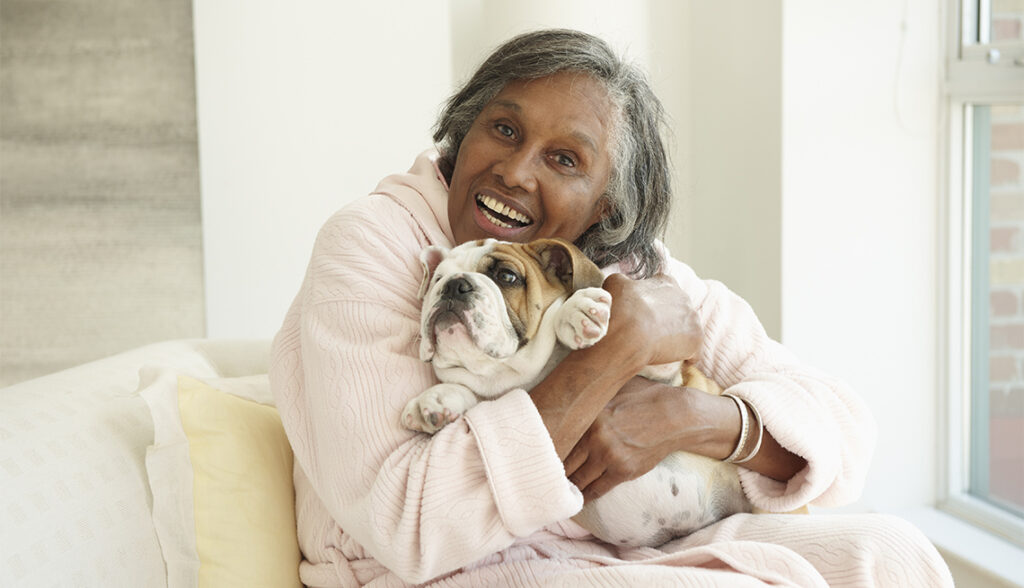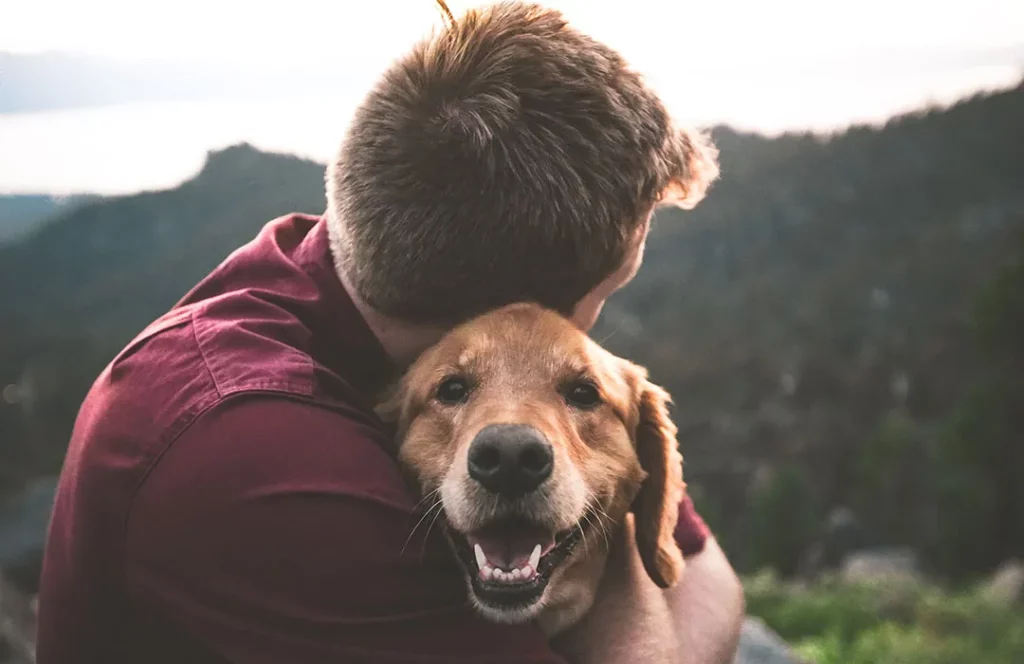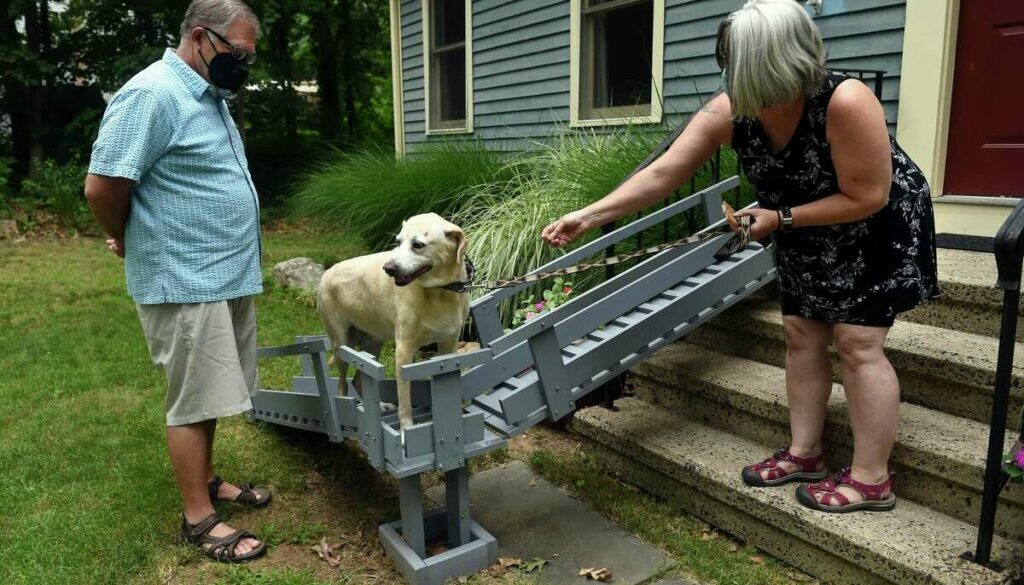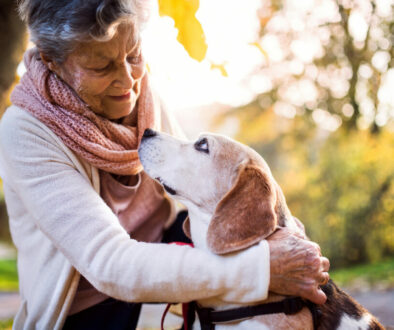Pet Loss and the Elderly: Navigating the Unique Challenges
Losing a beloved pet is an emotionally challenging experience for anyone, and for the elderly, it can bring about a unique set of difficulties. The grieving process for pet loss and the elderly may be intensified due to factors such as increased feelings of loneliness and the loss of routine and purpose.
This article aims to explore the intricate relationship between pet loss and the elderly population, offering insights into the challenges they face and providing strategies for navigating this grief.
As our furry companions become an integral part of our lives, the bond between pets and the elderly is particularly strong. Pets provide not only companionship but also emotional support, reducing feelings of loneliness, promoting physical well-being, and contributing to overall mental health. In this article, we delve into the complexities of pet loss in the elderly and provide guidance on how to navigate this challenging journey.
Understanding the Bond Between Pets and the Elderly
The bond between pets and the elderly goes beyond mere interaction. For many seniors, pets become their closest confidants, offering unwavering companionship and a sense of purpose. A pet’s presence can alleviate feelings of loneliness and provide a constant source of love and affection.
Moreover, owning a pet has been scientifically proven to have positive effects on physical and mental health in the elderly. Regular walks and playtime with pets contribute to maintaining an active lifestyle, reducing the risk of physical ailments, and improving cardiovascular health. Pets also offer emotional stability, decreasing stress levels and boosting overall well-being.

The companionship provided by pets is particularly significant for the elderly who may face challenges such as a lack of social interaction or limited mobility. Elderly individuals often experience a sense of isolation, especially if they have lost friends or loved ones. In such situations, a pet can become their primary source of social contact, bringing joy and purpose to their lives.
The unconditional love and non-judgmental support provided by pets have a profound impact on the mental well-being of the elderly. Pets are excellent listeners, and seniors often find solace in sharing their thoughts and feelings with their furry companions. The presence of a pet can alleviate feelings of anxiety and depression, as they provide constant companionship and help seniors feel needed and loved.
Pets also offer a much-needed routine and structure to the lives of the elderly. Taking care of a pet requires daily feeding, grooming, and exercise, which provides a sense of purpose and responsibility. This daily routine can help seniors maintain a sense of normalcy and a reason to get out of bed each day.
The Grief Process in the Elderly
Losing a beloved pet is an emotionally challenging experience for anyone, regardless of age. However, the grief process in the elderly can be particularly complex and unique. As seniors navigate through the loss of a pet, they may face a variety of challenges and emotions that are influenced by their age and life circumstances. It’s important to understand these factors and provide appropriate support during this difficult time.
Unique Challenges and Emotions Experienced by Seniors
Seniors often experience a multitude of unique challenges and emotions when grieving the loss of a pet. Here are some common aspects to consider:
- Increased vulnerability: As individuals age, they may become more vulnerable to feelings of grief and loss. The loss of a pet can magnify these emotions, as seniors may feel acutely aware of their own mortality and the passing of time.
- Multiple losses over time: Seniors may have experienced the loss of multiple pets throughout their lives, which can compound their grief. Each loss can bring up memories of past pets, leading to a cumulative sense of sadness and longing.
- Sense of isolation: The loss of a pet can intensify feelings of loneliness and isolation in the elderly. Pets are often constant companions, providing unconditional love and companionship. Without their presence, seniors may feel a significant void in their daily lives.
- Guilt and regret: Seniors may experience feelings of guilt or regret surrounding the loss of their pets. They may question whether they provided enough care, made the right decisions, or could have done more to prevent the loss. These feelings can be amplified by their sense of responsibility and the belief that they should have been able to protect their pet.
- Attachment and dependence: Seniors may have formed a deep emotional attachment to their pets, relying on their companionship and love for emotional support. The loss of this significant bond can be devastating and may result in a prolonged grieving process.
Coping Strategies and Support Systems
Recognizing these unique challenges, it is crucial to provide appropriate support and coping strategies for seniors grieving the loss of a pet. Here are some strategies that can be helpful:
- Encourage expression of emotions: Create a safe and non-judgmental space for seniors to share their feelings of grief. Encourage them to express their emotions through talking, writing, or engaging in creative activities. Allowing seniors to openly grieve and process their emotions is an essential part of the healing process.
- Provide companionship and support: Offer companionship and support to seniors during this difficult time. Spend time with them, engage in activities they enjoy, and provide a listening ear. This can help alleviate feelings of isolation and provide a sense of comfort and understanding.
- Connect with support networks: Encourage seniors to reach out to support networks such as family, friends, or pet loss support groups. These groups provide a safe environment where individuals can share their experiences, find empathy, and receive guidance from others who have gone through similar experiences.
- Consider grief counseling or therapy: If seniors are experiencing significant distress or are having difficulty coping with their grief, it may be beneficial to seek professional help. Grief counseling or therapy can provide the necessary guidance and support to navigate the complexities of grief and help seniors develop healthy coping mechanisms.
- Engage in self-care: Encourage seniors to prioritize self-care during the grieving process. This may involve getting enough rest, eating nutritious meals, engaging in physical activities, and participating in hobbies they enjoy. Self-care acts as a form of self-compassion and can promote emotional well-being and resilience.
Recognizing Signs of Grief in the Elderly
It’s important to be aware of the signs that may indicate an elderly individual is experiencing grief. While grief can manifest differently in each person, there are common signs to watch for:
Physical Symptoms:
- Changes in appetite, such as a loss of interest in food or overeating.
- Sleep disturbances, including insomnia or excessive sleeping.
- Fatigue or a lack of energy.
- Physical ailments such as headaches, stomachaches, or muscle pain.
Emotional Indicators:
- Intense sadness, tearfulness, or a persistent low mood.
- Feelings of emptiness or numbness.
- Irritability or increased agitation.
- Difficulty concentrating or making decisions.
- Social withdrawal and a loss of interest in previously enjoyed activities.
Recognizing these signs allows for early intervention and support. If these symptoms persist or significantly impact a senior’s daily functioning, it may be necessary to seek professional help to ensure their well-being during the grieving process.
Unique Challenges in Coping with Pet Loss for the Elderly
Coping with the loss of a pet can be particularly challenging for the elderly. They face unique obstacles that can make the grieving process more difficult. Some of these challenges include:
- Increased vulnerability to depression and isolation: The loss of a pet can trigger or worsen feelings of depression and isolation in the elderly. Pets often provide companionship, unconditional love, and a daily routine, which can be especially important for seniors who may be living alone or have limited social interactions. Without their pet, they may experience a heightened sense of loneliness and a loss of purpose or structure in their daily lives.
- Lack of resources to manage grief: The elderly may have limited access to resources and support systems to help them cope with pet loss. They may not be aware of available grief counseling services or support groups, or they may lack transportation or financial means to access such resources. This can leave them feeling unsupported and unsure of how to navigate their grief effectively.

Here are some strategies for navigating pet loss in the elderly:
- Encourage a support network: Help the elderly establish a support network by reaching out to family, friends, neighbors, or even local pet loss support groups. Having individuals who understand and empathize with their grief can provide a sense of validation and comfort.
- Engage in grief counseling or therapy: If the grief becomes overwhelming or persists for an extended period, consider encouraging the elderly person to seek professional help. Grief counseling or therapy can provide them with a safe space to express their emotions and help develop coping strategies specific to their situation.
- Explore alternative companionship options: While no pet can fully replace the one that was lost, exploring alternative companionship options can be beneficial. Consider options such as volunteering at a local animal shelter, participating in pet therapy programs, or fostering pets. These activities can provide the elderly with a sense of purpose and connection to animals.
- Create a memorial or tribute: Encourage the elderly to create a memorial or tribute to honor their lost pet. This can involve creating a photo album, planting a tree or flower in the pet’s memory, or writing a letter expressing their feelings. It allows them to commemorate the relationship and find a sense of closure.
- Channel grief into creative outlets: Engaging in creative activities can be a helpful way to channel grief. Encourage seniors to express their emotions through painting, writing, journaling, or crafting. Creative outlets can serve as a form of therapy, providing a way to process emotions and find solace.
- Maintain a routine and self-care: Encourage the elderly to establish a daily routine, focusing on self-care activities such as exercising, eating well, getting enough sleep, and engaging in activities they enjoy. Maintaining structure and prioritizing their well-being can support their overall emotional resilience.
Remember, each person’s grief journey is unique, and it is important to validate their emotions and provide ongoing support. Be patient, and understanding, and offer a listening ear whenever they need to share their thoughts or memories of their beloved pet.
FAQs:
1. How long does the grieving process usually last for the elderly?
The grieving process is unique to each individual and can vary in duration. It is important to understand that there is no set timeline for grief, and it can last anywhere from several weeks to months or even longer. Factors that can influence the duration of grief include the individual’s relationship with the pet, their coping mechanisms, and their support system. It is important to be patient and understanding, allowing the individual to grieve at their own pace.
2. What are some common physical symptoms of grief in the elderly?
Common physical symptoms of grief in the elderly can include:
- Fatigue or lack of energy
- Sleep disruptions, such as insomnia or excessive sleeping
- Loss of appetite or overeating
- Headaches or migraines
- Gastrointestinal problems like stomachaches or digestive issues
- Weakened immune system, making them susceptible to illnesses
It is important to note that physical symptoms can vary from person to person, and it is always recommended to consult a healthcare professional if these symptoms persist or worsen.
3. Are there any financial assistance programs available for seniors dealing with pet loss?
While there may not be specific financial assistance programs solely focused on pet loss for seniors, there are organizations and resources that can provide assistance. Local animal welfare organizations or pet-centric nonprofits may offer support in the form of financial aid, discounted veterinary services, or pet food assistance. Additionally, reaching out to community senior centers, religious organizations, or social service agencies may provide information about available resources or funding options.
4. Can therapy animals provide companionship and emotional support for the elderly?
Yes, therapy animals can provide companionship and emotional support for the elderly. Therapy animals, such as certified therapy dogs, can offer comfort and companionship by providing affection, a calming presence, and engaging in interactive activities. They can help reduce feelings of loneliness, anxiety, and depression, and promote overall emotional well-being. Interactions with therapy animals have been shown to have various benefits, including stress reduction, increased social interaction, and improved overall mood.
5. How can caregivers best support grieving seniors through the loss of a pet?
Caregivers can support grieving seniors through the loss of a pet by:
- Validating their grief and acknowledging their feelings.
- Providing a listening ear and creating a safe space for them to express their emotions.
- Encouraging participation in activities that promote healing, such as creating memorials or engaging in therapeutic outlets.
- Offering companionship and engaging in shared activities to help combat feelings of isolation.
- Educating themselves about grief and its impact to better understand and empathize with the senior’s experience.
- Encouraging self-care and supporting the senior’s physical and emotional well-being.
- Assisting in finding resources, such as grief counseling or pet loss support groups, if necessary.
- Being patient, understanding, and compassionate throughout the grieving process.
Each individual may have different needs and preferences, so it is important for caregivers to provide personalized support based on the senior’s unique situation and communication style.
Conclusion
Losing a pet is a painful experience for anyone, and the elderly face unique challenges during the grieving process. However, with understanding, support, and the implementation of effective strategies, seniors can navigate this journey and find healing. By prioritizing self-care, seeking support from loved ones and community resources, and considering alternative companionship options, the elderly can honor the memory of their pets while building resilience and finding joy once again.
Also Read:
Pet Care Tips for Cats for Beginners
Pet Care Tips for Dogs for Beginners



